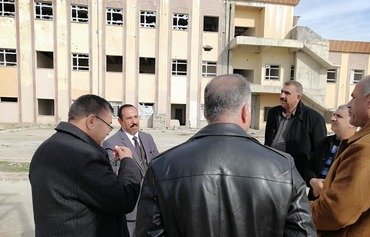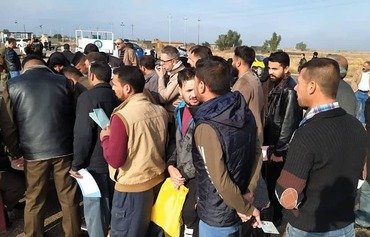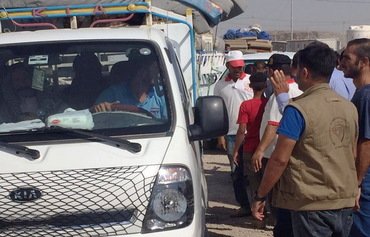After more than three years of displacement, dozens of families forced to flee their homes by the "Islamic State of Iraq and Syria" (ISIS) have returned to al-Rabia district in western Ninawa province, local officials tell Diyaruna.
To facilitate their return, the Kurdish regional government has formed a specialised security committee to verify the names of residents who fled al-Rabia villages and ensure they are not associated with ISIS.
The first batch of returning families -- comprising around 250 people -- returned to the agricultural village of Qisya at the beginning of September.
Qisya, like other al-Rabia villages, saw a partial displacement of its residents when ISIS swept through Ninawa in the summer of 2014, said al-Rabia district council member Mohammed al-Jafal.
"Displaced residents have been allowed back now that the procedure of verifying their names has been completed," he told Diyaruna.
Al-Jafal, who supervised the return of the internally displaced persons (IDPs), said all village residents have now returned to their homes, except for a few families who were involved with ISIS, as "no one wants those families back".
Rebuilding Qisya village
Efforts are still under way to rebuild Qisya, which was badly damaged while ISIS was in control of the village, al-Jafal said.
"We repaired the power grid and are providing residents with water and the necessary services," he said.
But certain damage requires government support, al-Jafal added, as is the case with the only school in the village, which was totally destroyed.
Most homes were either fully or partially destroyed, and families have been forced to live in them in their current condition after undertaking minor repairs, he said.
"We, for our part, are trying to help affected [residents] submit complaints to the courts and obtain a damage assessment by a committee comprising engineers and technicians from the Rabia District Directorate," he said.
Al-Jafal said the district submits requests for compensation to the Ninawa local government and other relevant organisations.
"So far, no compensation has been paid to any of the affected [families], and no funds have been allocated to rebuild their homes," he said.
He called on the government to pay attention to Qisya, as it is an agricultural village that produces abundant quantities of wheat and barley.
"It also has many oil wells, and the discovered oil fields were operational and in the process of being developed before the ISIS occupation," al-Jafal said.
Damaged homes dampen spirits
The process of returning displaced families will continue to gain momentum, said Ninawa provincial council services committee member Hosam Eddin al-Abbar.
"However, what spoils the returnees’ joy is the damage inflicted on their homes by the militants," he told Diyaruna.
Damaged homes, in all villages and cities in Ninawa province, represent "a major challenge for which the government must find a quick solution", he said.
This issue "directly impacts residents’ lives" and affects efforts to promote stability, he said.
The return of residents to the village of Qisya in al-Rabia "is a good sign that bodes well for the return of all IDPs who left their villages" in the district, said Younis Badr Jumaa, principal of the village's elementary school.
"Our village was known for its natural beauty and natural resources, but ISIS militants turned it into ruins," he told Diyaruna.
"They destroyed and looted everything, even electricity poles and cables," he said, adding that efforts are under way to repair facilities and restore services.
Jumaa expressed hope that the return of displaced families would spur government agencies to rebuild Qisya.
"About 90% of homes are destroyed, and their occupants are living under difficult humanitarian conditions," he said.

![Iraqi Ministry of Migration and Displacement officials distribute food to al-Rabia district residents. [Photo via the Facebook page of the office of the representative of the Ministry of Migration and Displacement in the Kurdish region]](/cnmi_di/images/2017/09/20/9550-Iraq-Rabia-food-600_384.jpg)






